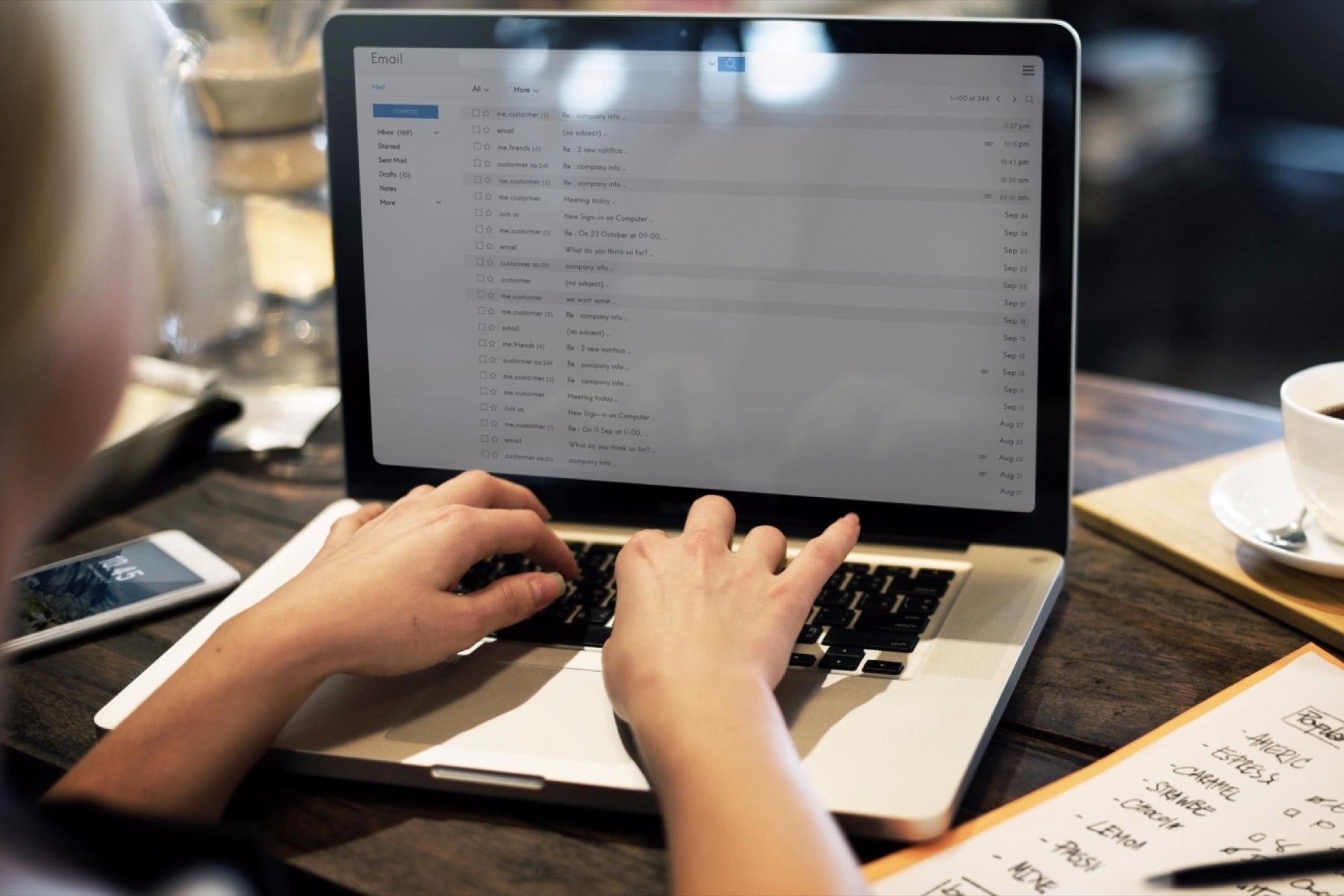3 Proven Ways to Cope With Email OverloadLet the other person have the last word so you can get back to work.
Opinions expressed by Entrepreneur contributors are their own.

Let's face it, email is both a blessing and a curse. It keeps us connected with friends, family and clients, yet it is also an extreme distraction from our daily goals, duties and responsibilities.
According to areportfrom the McKinsey Global Institute, 13 hours, or 28 percent, of our workweek is spent reading, deleting, sorting and sending emails. In the 90s, when email was becoming popular, people looked forward to opening their mail. But we no longer live in the blissful "You've Got Mail" era. Today, our relationship with email is frustrating, at best. It controls us, yet we should be controlling it.
There are reasons why we're drawn to email distraction and ways to cope. Here's how to lessen email overload and make time for more productive activities.
Related:The Only Email Template You Need to Get That Crucial Introduction
1. Keep your business and personal accounts separate.
"Email triggers a part of the brain I call "lottery brain,'" said psychotherapistNancy Coller. "It's the part of the brain that produces the thought/hope/belief that miracles can happen, and specifically, to us personally. It inspires hope and a sense of possibility, as long as that hope is also supported by proactive agency in our behavior."
What you hope to receive in your email lottery is that "winning ticket" that can be everything from a testimonial for good work to a new contract, although the majority of emails, like non-winning lottery tickets, can be easily discarded.
Set up separate email accounts for business-related accounts and personal or junk accounts. For example, you may want all of your business email to go through your website and all of your personal email to go through a Gmail account.
After checking all your accounts once, turn off your email and social media alerts. Check email at pre-determined intervals throughout the day. Try not to check email right before you go to bed if you want to stay on a regular schedule and get a good night's sleep.
Related:7 Email Etiquette Strategies That Will Win You Clients for Life
2. Only send and reply when necessary
The more email you send, the more messages you will receive. That's why it's important to ask yourself, "Is this message really necessary?"
Here are some other timesaving tips: Avoid thanking someone for thanking you. Resist the urge to "reply all" when you receive a group email. And change the subject line whenever you change topics of discussion.
For one week, keep a log of how many times you check email during the day. The following week, make it a point to check it less. Notice when you have the urge and consciously choose not to give in. You could be merely bored. The more awareness you have, the better you can control this urge.
Related:6 Reasons Your Email Marketing Efforts Are Not Effective
3. Go on an email diet.
To do a good job at anything takes our full concentration, and breaking away from the work at hand to check email every five minutes can derail your task completely. Astudyfrom the University of California Irvine reports that although 82 percent of all interrupted work is resumed on the same day, it takes an average of 23 minutes and 15 seconds to get back to the task.
Use the power of time blocking to complete important tasks without interruption. Mark off uninterrupted blocks of time on your calendar that are assigned to completion of specific tasks, and do not check email or allow outside interruptions during those time blocks.
Although it can only take a few minutes to check email, those seemingly small distractions can truly add up throughout your workday. Set a timer and allow yourself only 15 minutes to check email several times a day. Then move on to the next task.
The more you become aware of the time-stealing effects of email the less you will be inclined to let it overshadow your workday.











